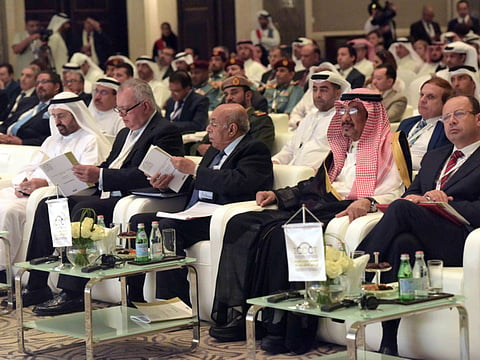5% of global cyber attacks targeted UAE last year
Effective international framework needed to deal with cyber terrorism, Dr Gargash says

Abu Dhabi: The UAE was the target of 5 per cent of all global cyber attacks last year, a senior minister said at an international conference in the capital on Monday.
“Last year alone, the UAE, with its thriving economy and important logistical infrastructure, was the target of 5 percent of all global cyber attacks, with cyber attacks increasing by over 500 per cent over the last five years,” Dr Anwar Bin Mohammad Gargash, Minister of State for Foreign Affairs, said. He was addressing the International Conference for the Criminalisation of Cyber Terrorism (ICCCT) in Abu Dhabi.
“It is evident that this is something that we do need to acknowledge and do need to protect ourselves against,” he added.
Dr Gargash told Gulf News that the number of attacks on the country were expected given the UAE’s progress and dependence on technology in all its spheres.
“In this troublesome region, UAE is a big target [of cyber attacks]. But what we are emphasising is that we need to raise awareness about the threat of cyber security, and also that this is an issue that has to be addressed collectively,” he said.
The recent global ‘ransomware’ cyber attacks, which affected computers in more than a 150 countries in an audacious blackmailing spree targetting tens of thousands of computers, were a hot topic at the conference. The experts agreed that the problem could only be prevented through a united global approach.
“Incidents like these [ransomware cyber attack] demonstrate the urgent need for us to act jointly to create an effective international framework that can help us deal with the challenge of cyber terrorism and its devastating consequences,” Dr Gargash said.
“We notice from the ransomware attack a couple of days ago, even very big countries were attacked. They didn’t have effective defences. I am afraid that this was a bit of a wakeup call for everybody, that the defences that we have, are not really up to the task,” Dr Jehangir Khan, Director of the UN Counter-Terrorism Implementation Task Force (CTITF) and the UN Counter-Terrorism Centre (UNCCT) in the Department of Political Affairs (DPA) in the UN Secretariat, told Gulf News.
Dr Mohammad Al Kuwaiti, executive director, National Electronic Security Authority (NESA) said, “The attack we saw recently [ransomware] could be used by those radicalised, if they get their hands on such technology. They have the intention.”
The first day of the event also heard the experts warn of the urgent need to develop legislations while trying to solve the route of the problem, namely the exploitation of young people online by extremists.
Gilles Pargneaux, member of the European parliament, said, “cyber terrorism is a phenomenon that has taken a different face specially when we see the recruitment of youngster”.
Speaking about extremist websites and social media platforms that aim to radicalise young people, Pargneaux suggested that one action could be to place sanctions against countries that host extreme internet sites.
“We cannot do this alone. It’s not Europe alone on one side and Arab countries on the other,” he said.
Dr Khan said that the international organisation’s engagement of young people was imperative to combating this new enemy.
“Terrorists are targeting young people. There are more than 1.8 billion young people in the world today,” said Dr Khan.
The official said that if young people were provided with opportunities that allows them to positively channel their energy and potential, they would use it in a constructive manner, to build their society.
“This is much more than the issue of the internet. Issue of the internet is one aspect of it but it goes deeper,” he said.
“Unfortunately there is no single solution. And no one country or single nation can address this issue alone,’ he added.
The event will continue in the capital tomorrow where experts are expected to discuss prospects for joint actions and comprehensive frameworks that can criminalise electronic terrorism.



